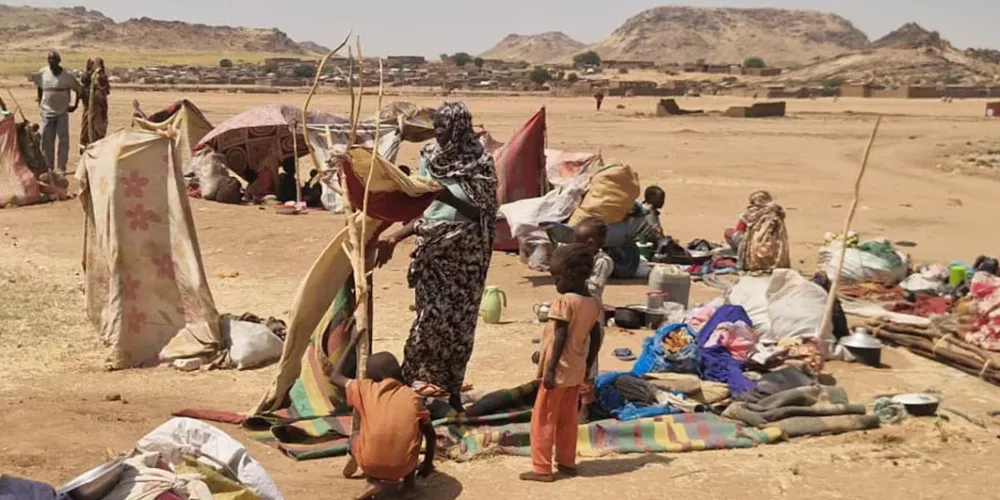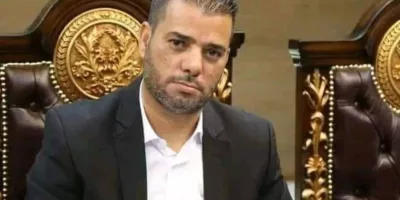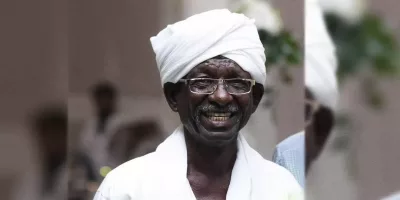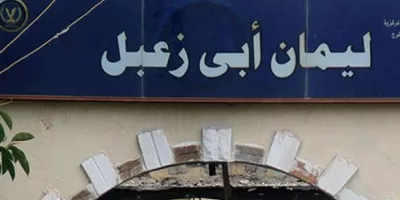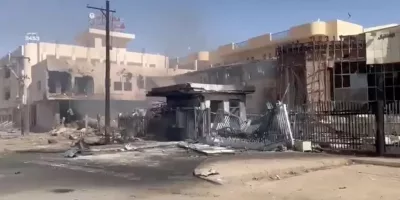14 November 2025
Committee for Justice (CFJ) welcomes the new resolution adopted today by the UN Human Rights Council (HRC) at its Special Session on the human rights situation in and around El Fasher, North Darfur. The resolution tasks the UN Fact-Finding Mission (FFM) on Sudan with conducting a dedicated investigation into mass atrocities committed in El Fasher by the Rapid Support Forces (RSF) and allied militias, and calls on all parties to allow life-saving humanitarian aid to reach civilians trapped in the besieged city.
The Special Session was convened at the request of a cross-regional core group (United Kingdom, Germany, Ireland, the Netherlands and Norway, supported by all EU Member States) and concluded with the adoption by consensus of a resolution condemning atrocities committed by the RSF and supporting enhanced investigative work by the FFM, with a view to addressing impunity and supporting accountability. This follows months of warnings by the UN High Commissioner for Human Rights and others of appalling reports of summary executions and other serious violations in El Fasher and North Kordofan, and of a mounting risk of large-scale, ethnically motivated atrocities as the RSF tightened its long siege and ultimately took control of the city.
CFJ has repeatedly documented and denounced RSF crimes in El Fasher, including the starvation of civilians under siege, the shelling and bombing of hospitals and displacement camps, and targeted attacks on medical personnel and relief workers.
These include the killing of doctors and civil society activists, direct strikes on El Fasher Hospital and other health facilities, and the arrest or injury of frontline medical staff. Today’s resolution is therefore a long-overdue response to an escalating pattern of mass killings, sexual violence, enforced disappearances, and starvation-as-a-weapon that may amount to war crimes, crimes against humanity, and possibly genocide.
At the same time, CFJ warns that atrocities in Sudan will continue to spread unless accountability extends beyond direct perpetrators to include those who arm, finance, and politically protect them. Despite strong language condemning RSF abuses and calling for humanitarian access, the resolution stops short of mandating an investigation into the role of external actors that have supplied arms, equipment, and other support to the RSF and, to a lesser extent, to the Sudanese Armed Forces (SAF). This omission contradicts clear demands from Sudanese, regional, and international organisations who have urged the Council to ask the FFM to assess the role of external actors and identify individuals and entities responsible for violations.
Executive Director Ahmed Mefreh Said:
“The people of El Fasher are living through a man-made catastrophe: an 18-month siege, systematic starvation, ethnically targeted massacres, and the deliberate destruction of hospitals and displacement camps. These crimes are being committed by forces that do not operate in a vacuum. They are armed, supplied and funded through regional and international networks that have so far escaped any meaningful scrutiny. Any serious effort to end impunity in Sudan must follow the chain of command and the chain of supply.”
Mefreh added:
“We welcome the Council’s decision to strengthen the mandate of the Fact-Finding Mission on Sudan, but we regret that it did not fully respond to civil society’s call to explicitly investigate the role of states and private actors who are fuelling the war. Without consequences for those who provide weapons, money, and political cover, the message to the perpetrators in Darfur is that they can kill today and rearm tomorrow.”
There is now extensive and credible evidence that the RSF has benefited from external support, including arms, equipment and training, with foreign-manufactured components or systems ending up on RSF-used vehicles in Darfur, in apparent violation of the UN arms embargo on Darfur. UN officials, independent experts, NGOs and investigative journalists have all raised alarm about these transfers and urged states to halt arms sales to intermediaries where there is a substantial risk that the equipment will be re-exported to parties to the conflict in Sudan.
CFJ also reiterates that serious violations have been committed by the SAF and associated militias in Darfur and elsewhere in Sudan, including indiscriminate attacks in populated areas, obstruction of humanitarian aid, and abuses against civilians perceived to support the opposing side. The Council’s resolution must therefore be implemented in a way that ensures impartial, victim-centred investigations into violations by all parties, with particular attention to ethnically targeted violence and sexual and gender-based crimes.
CFJ calls on the Human Rights Council and UN member states to:
-
Fully resource and operationalise the FFM’s additional investigative tasks on El Fasher, including rapid deployment capacities, protection for witnesses and survivors, and strong coordination with Sudanese civil society and emergency response groups.
-
Explicitly request the FFM and other UN mechanisms to analyse the role of external actors – states, private companies and financial intermediaries – in supplying arms, equipment, funding and political support to the RSF, SAF and allied militias, and to issue concrete recommendations for targeted sanctions and arms-control measures.
-
Ensure that the FFM’s findings on El Fasher are promptly shared with other accountability mechanisms, including the International Criminal Court and the African Union’s bodies, and that evidence is preserved for future prosecutions at the international, regional or national level.
-
Adopt and enforce national measures to halt all direct or indirect arms transfers to parties to the conflict in Sudan, in line with obligations under the UN arms embargo on Darfur and international human rights and humanitarian law.
-
Support Sudanese and Darfuri civil society organisations, medical networks and women’s groups, who continue to document violations in extremely dangerous conditions and whose evidence will be critical for any future accountability process.
CFJ reaffirms its solidarity with the people of El Fasher and all communities in Sudan who are facing mass atrocities, famine, displacement and the destruction of their cities and villages. Today’s resolution is an important step; whether it becomes a turning point will depend on whether states are willing to confront not only the killers, but also those who supply the weapons and profit from Sudan’s agony.

